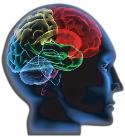Certain Cancers Increase Risk for Guillain-Barré Syndrome
 A new study in Neurology reports an increased risk for developing Guillain-Barré Syndrome in people with certain types of cancer, specifically lymphomas and blood cancers, as well as in those who had lung, prostate or breast cancers. The study does not prove that cancer causes Guillain-Barré syndrome. It only shows an association.
A new study in Neurology reports an increased risk for developing Guillain-Barré Syndrome in people with certain types of cancer, specifically lymphomas and blood cancers, as well as in those who had lung, prostate or breast cancers. The study does not prove that cancer causes Guillain-Barré syndrome. It only shows an association.
Guillain-Barré syndrome is a rare neurologic disorder in which the immune system attacks nerve cells. Symptoms typically start with weakness and tingling in the feet and legs, which spread to the upper body and arms and may progress to paralysis. Although it can be life-threatening, most people recover with few remaining problems. An exact cause of Guillain-Barré syndrome is unknown, but it can occur after gastrointestinal or respiratory infections.
“While a majority of Guillain-Barré syndrome cases develop after an infection, there are still many cases that do not,” said study author Lotte Sahin Levison, MD, PhD, of Aarhus University Hospital in Denmark. “Previous studies have suggested there may be a link between cancer and Guillain-Barré syndrome, but just how often people develop Guillain-Barré after a cancer diagnosis has not been well-studied. Our research looked at the population of nearly six million people in Denmark and found that people diagnosed with cancer may have a higher risk of developing Guillain-Barré.”
For the study, researchers reviewed Danish national registries. Over a 30-year period, they identified 2,414 people who were diagnosed with Guillain-Barré syndrome. For each person diagnosed with the disease, researchers also identified 10 people without the disease who were matched for age and sex at the time of Guillain-Barré diagnosis, for a total of about 24,000 people who did not have Guillain-Barré.
Researchers then identified people in the study who had a recent cancer diagnosis. This was defined as a cancer diagnosis up to six months before or two months after a Guillain-Barré diagnosis. Recent cancer diagnosis was determined for people with Guillain-Barré and for the people matched to them without the disease.
Of the people who had Guillain-Barré, 49 people, or 2%, had a recent cancer diagnosis. Of the people who did not have Guillain-Barré, 138 people, or 0.6%, had a recent cancer diagnosis.
Researchers found that people recently diagnosed with cancer had over a three-and-a-half times greater risk of developing Guillain-Barré than people without cancer. After adjusting for surgery, infections and other health problems in a subset of participants, researchers still found a nearly a three times greater risk.
When looking at specific cancers, people with cancers like lymphomas had a seven times greater risk, people with lung or prostate cancer had a five-and-a half times greater risk, and those with breast cancer had a five times greater risk.
“While our study suggests that people with cancer have a greater risk of developing Guillain-Barré syndrome, it is important that people with cancer know the overall risk of developing Guillain-Barré is still very small,” said Levison. “More research is now needed. Our results suggest that yet unidentified factors present in several types of cancer may contribute to this increased risk.”
A limitation of the study was that people with Guillain-Barré may have been more closely screened for cancer compared to people who did not have Guillain-Barré, so some cancer cases in the second group may have been missed.
Related Articles
Citation
Certain Cancers Increase Risk for Guillain-Barré Syndrome. Appl Radiol.
March 2, 2022